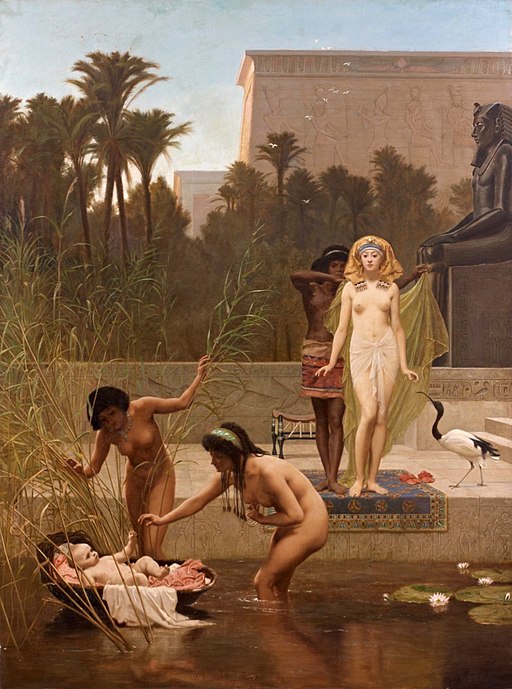 |
| The Finding of Moses by Frederick Goodall |
...when the spiritual communications flow over into the senses [e.g. sensible visions of the Sweet World, Mary, the Divine Child, etc.], the devil succeeds the more easily in disquieting the mind, and in disturbing it with the terrors with which he assails it through the senses...The "magicians of Pharaoh" sounds a lot like Farthington! But most importantly, this helps explain what happened to Arthur. He was experiencing sensible visions, that is, spiritual communications that "flow over into the senses." This explains how Arthur is deluded by "false visions of the same kind" and ends up on a "low road" that bears many characteristics of the high road he was on.
When...a soul has real visions, through the instrumentality of an angel...God suffers the evil spirit to represent false visions of the same kind, in such a way that an incautious soul may be very easily deluded, as it has happened to many. We have an instance of this in Exodus, where we read that the magicians of Pharaoh wrought apparently signs and wonders resembling those really wrought by Moses. For when Moses brought forth frogs, the magicians of Egypt did the same; and when he turned water into blood, so did the magicians.
For as Job says, "He seeth every high thing," that is, he apes them, and insinuates himself among them as well as he can. Spiritual visions [that is, ones that do not "flow over into the senses"] have neither form nor figure--that is the characteristic of spirit--and, therefore, Satan cannot imitate them...
But when God visits the soul Himself,...it receives, at such times, the spiritual graces of God. The reason of the difference is that God, being the sovereign Lord, dwells substantially in the soul, and that neither angel nor devil can discover what is going on there, nor penetrate the profound and secret communications which take place between Him and the soul [i.e. infused contemplation].
Then indeed the evil spirit would not venture to assail the soul, because he could not succeed, neither can he know of those divine touches in the substance of the soul with the loving substance of God. No man can arrive at this blessed condition but by the most perfect purgation and detachment, by being spiritually hidden from all created things.
The following passage explains how God continues to lead the soul through the resultant agonies, using the devil, as it were, as a means of mortifying the soul, preparing it for "the fruition of sweet spiritual contemplation." In other words, as I've tried to explain, this detour is not for naught (XXIII, section 10):
But we must remember that, when the good angel suffers the evil spirit to thus afflict the soul, it is with a view to purify and prepare it by that spiritual vigil for some great festival and spiritual grace which it is his will to bestow upon it, for he never mortifies but to give life, and never humbles but to exalt. This speedily ensues; for the soul, according to the measure of the dark purgation it has undergone, enters on the fruition of sweet spiritual contemplation, and that so sublime at times that no language can describe it. The horror of the evil spirit so refines the soul as to render it capable of so great a good, for these spiritual visions appertain to the next life rather than to this.Arthur's latter state should be better, more secure than his former one, as "the soul becomes wholly spiritual." An analog can be see in Hamlet: when he returns from the waters, he is no longer tormented by the ghost, having gained that "liberty of spirit so precious and desirable."
At this point, he is finally and truly not a "pipe for fortune's finger."
No comments:
Post a Comment